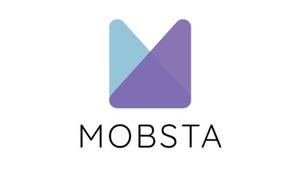
Advertising When People Have Better Things to Do than Look at Advertising

Mobsta is a proud supporter of LBB. As part of its sponsorship of the ‘Brand Insight’ and 'Media' channels, we’re exploring audience and media trends, discovering what brands and media experts think makes audiences tick in 2023 and beyond.
Dan Plant is chief strategy officer (CSO) at media agency Starcom UK. He joined in 2019 as the executive head of strategy, after working at Wavemaker and MEC UK as a global strategy partner and a group strategy director respectively. He has over 20 years of experience in media planning across UK and global roles, working with some of the world’s biggest brands such as Samsung, Netflix, Vodafone and Lloyds Banking Group. He is passionate about understanding how communications affect human behaviour, delivering effective and imaginative solutions. He was named one of the Campaign Top 10 Media Planners in 2021.
LBB’s Alex Reeves caught up with Dan about how unpredictable media has been since he entered it in 2000, why it’s crucial to understand people’s reluctance to engage with advertising, and much more.
LBB> You've got over 20 years’ experience in media planning. What's kept it interesting for you over that time?
Dan> In 1999, I left university with two things – 1) a law degree 2) zero desire to practise law!
Whilst the reasons that made me choose to study law in the first place – particularly an enjoyment of rigorous critical thinking – still mattered to me, I realised that ‘the law’ moves at glacial pace, and I wanted to be part of a world which changes a little faster!
When I stumbled across the discipline of media planning, I realised that this was an industry that I could get stuck into - a great balance of science and creativity where critical thinking and rigorous analysis is vital, but also where adaptability is key. This was especially true as we saw the emergence of the world wide web and the incredible potential it represented.
I joined the world of media in March 2000, at the peak of the first dotcom bubble, expecting that the future was going to be wildly unpredictable, and it really has not disappointed.
Bear in mind that at that time, the online advertising industry represented less than 3% of all media spend, YouTube was a twinkle in Google’s eye, and Google itself was a small player versus Yahoo and MSN. Anyone making predictions back then would have ended up looking foolish (not that that stopped them trying!). That constant change means there is simply no time to get bored in media planning. Every new consumer behaviour and emerging media channel requires a strategic pivot to match.
LBB> One of the key initiatives you've been involved in at Starcom is a digital insights training programme to help planners and strategists learn how to extract behavioural data from digital planning tools. What are some general lessons that have come from that experience?
Dan> Our digital insights training programme started with the idea that if you really want to understand people and their motivations, you should look at what they do rather than what they say.
Many of the desktop-based research tools that we have historically used to uncover audience insights use claimed behaviour and attitudes. That’s better than nothing, but we know that most people are pretty rubbish at assessing their own motivations, or even remembering how often or recently they took an action.
In a world where many people live out their lives in an online space, we can now look at real actions and the actual choices people make just before they make a purchase to get a much truer understanding of what really matters to them.
By looking at the details of the searches that people make across the course of a journey to purchase, we can get a real understanding of how intent develops and finally converts to a purchase decision. We have found that this level of understanding allows us to create much more compelling media solutions to move people towards our brands. Interestingly, most of the techniques we use were taught to us by our award-winning SEO and performance teams - we are just using the insights much further up the purchase funnel.
LBB> In a time when people are increasingly wise to the fact that media is vying for their attention as a commodity to be traded for profit, how can brands earn that attention?
Dan> It seems pretty obvious, but you have to figure out what they are interested in, not what we want them to be interested in. We should be asking ourselves ‘how do we provide genuine value in our advertising, whether in the form of entertainment, valuable information or social currency that they will remember?’.
I also believe we should remember the power of contextual placement. By building genuine associations with high-quality content that people are actively seeking out - and even paying to consume - we say a lot more about brands than just chasing people based on a piece of data we have on them.
LBB> Our industry is increasingly tech driven. How do you remind yourself and your team to focus on humanity in what you do?
Dan> There are two contrasting principles I always ask Starcom strategists and planners to consider. The first is to understand that we are never the target audience for our campaigns, and that we can’t possibly plan those campaigns unless we have actually understand the real people that will be reached by the thousands of ads we send their way. It is vital that we understand that there is no such thing as ‘the average consumer’, each and every person that we reach will have their own personal reason to engage, and we need to put real names and faces to those people if we are going to understand how to engage them.
At the same time, however, I also ask our strategy team to think ‘would you really watch/listen to/engage with that?’. It might sound cool and use the latest tech, but most people, most of the time, have better things to do with their lives than look at advertising… why will your campaign be different?
LBB> Many have heralded 2023 as the year that retail media really begins to dominate. What shifts in that area will you be looking for in the coming months? And what do brands need to understand to make the most of retail media?
Dan> At Starcom and our wider holding company, Publicis Groupe, we have been investing in our commerce capability for several years now, and we are market leading in our ability to help our clients navigate this emerging retail media landscape, having acquired CitrusAd and Profitero. As more agencies and clients are understanding the opportunities here, the obvious implication is that there will be increased competition for the same space, so we are all going to have to work harder to stand out. As consumers start to understand that the messages they are seeing in the retail space are being paid for by brands, they will start to become more cynical about promotional messages and more inclined to ignore it. We must therefore be respectful of our relationship with those customers. It will be even more vital that we invest in brands’ relationships with customers before they reach the store, so that we are not seen to just be last minute opportunists.
LBB> What’s the trend in media strategy circles that is given too much airtime and why?
Dan> This year’s big shiny thing appears to be AI and large language models, so, although I myself am constantly thrilled as a consumer by what AI is capable of and have already found some interesting day to day practical uses of the technology, I am always wary of anything that is touted to be something that will ‘change everything’. AI is undoubtedly a wonderful testament to the innovative, creative times we live in, but I have a feeling that its immediate impact won’t be as all changing as people would have us believe.
I actually asked ChatGPT for its thoughts on some of these questions, and the answers were bland at best!
LBB> The carbon footprint of different media is an interesting topic of debate at the moment. What are the key considerations you'd go through with clients wanting to make sure they buy media with their sustainability goals in mind?
Dan> As part of Publicis Groupe, our objectives are to be Net Zero before 2030. This is our sustainability priority as we drive progress towards this urgent goal. Promises are not enough when it comes to the planet – we need action and progress towards this goal. One of the main considerations is starting to measure our carbon output for each campaign. We are upskilling our workforce on how to use the IPA’s industry carbon calculator so that we can offer this to clients, assess where we need to focus our efforts, see where perhaps we need to reduce or offset campaigns, and work with partners to do so where possible. And it’s not only the carbon emission of the media itself, but also thinking about the campaign idea – we’ve been working with clients on campaigns with sustainability at the heart, such as Citroën’s partnership with The Big Issue to distribute the magazine via electric vehicles for the next three years, or driving consideration of Vauxhall electric cars by bringing key information to the consumer through a partnership with Meta and Shuttlerock.












